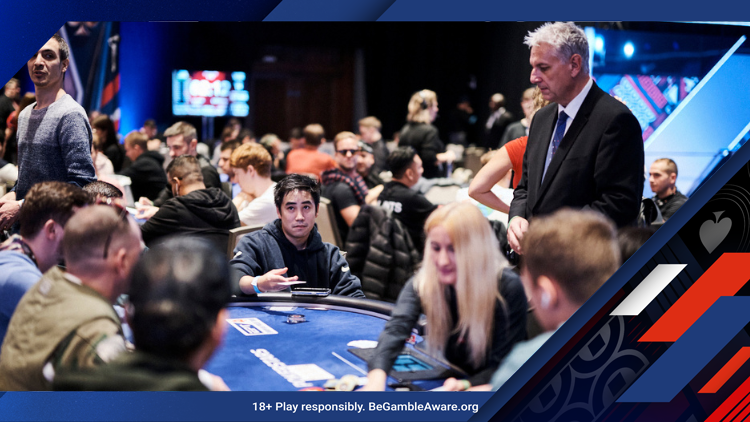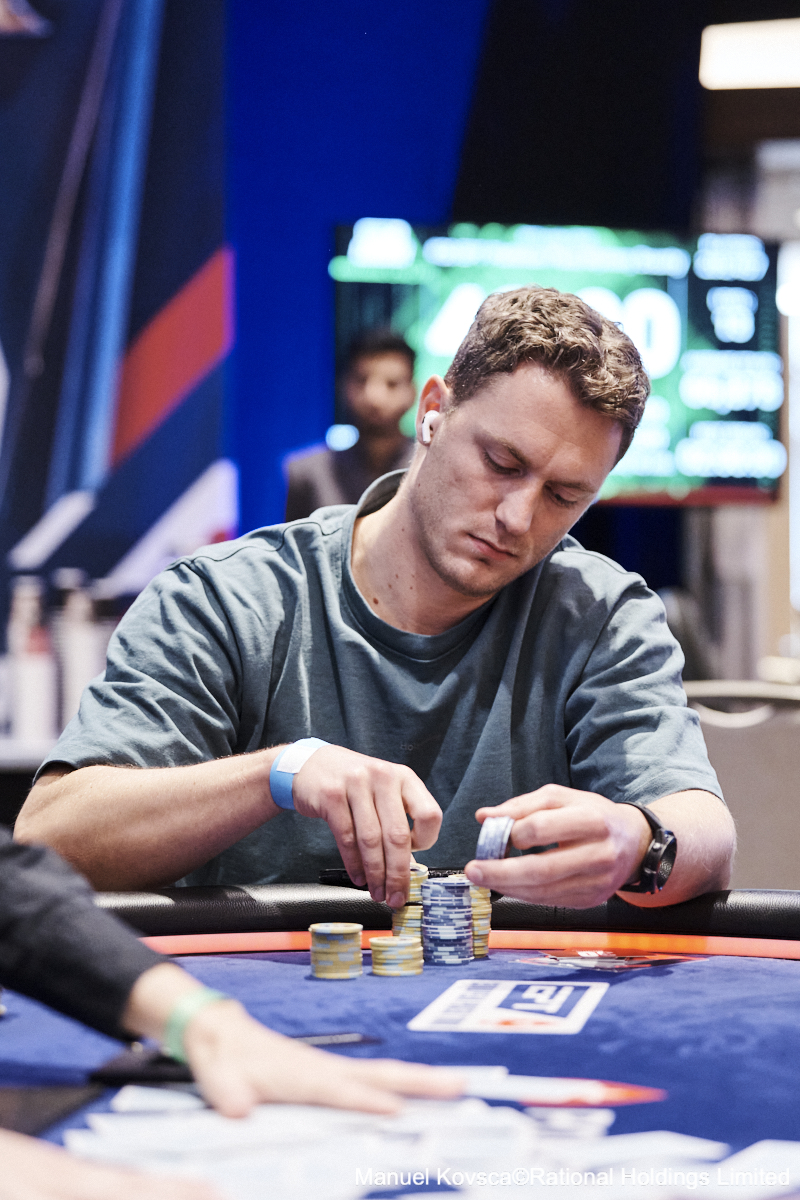Table of Contents
Modern tournament poker is an ever-changing beast, with new formats and new innovations forcing players to invent and adopt new strategies to make the most of them.
A recent hand in the EPT London Main Event demonstrated all of this — as well as how tournament officials are similarly needing to follow new trends to retain a level playing field.
“This is a breach of etiquette.” — European Poker Tour Tournament Director Toby Stone
The hand in question played out between Tim Chung and Mats Ullereng during the first level of Day 3 in the £5K Main Event, and ended with the elimination of the former.
But that couldn’t happen until two floor officials had been called to the table to examine how the hand had played out, and discuss what if anything needed to be done to address a new trend among short-stacked players.
BACKGROUND TO THE HAND
Chung arrived slightly late to play Day 2, arriving to find his overnight stack of 114,000 slightly depleted having paid a round or two of blinds in his absence. But he’d had soon been regretting arriving when he did, because he ended up losing around 80 percent of his stack on the first hand he actually played.
This one started when action folded to the ever-aggressive Ludovic Geilich on the button, and Geilich shoved for 92,000. Chung was in the big blind (2,000/5,000 in Level 16) and looked down at A♦ 10♣ , way ahead of Geilich’s button shoving range.
Chung called, saw Geilich’s K♦ 5♦ , but was then powerless after the dealer put the board of Q♣ Q♦ 6♥ 5♣ 3♠ on the table. Geilich paired his five, won the hand and doubled up. It left Chung with 22,000 — 2,000 of which he lost by folding the small blind on the next hand.
THE HAND IN QUESTION
Chung therefore entered the hand in question with exactly 20,000 chips, or four big blinds, and he was also aware that 73 players were still in the field. There was a scheduled pay-jump from £9,750 to £11,200 due when the player in 72nd left the field, so clinging on a tiny bit longer, albeit with the short-stack, could earn an additional £1,450.
Action then folded all the way around to Chung on the button.


A tournament official attends to the table where Tim Chung, seated, was eliminated
Making some hasty calculations, Chung knew that he should probably not just commit his chips without due consideration. There’s a 30-second shot clock in play now in EPT Main Events, allowing players 30 seconds to make a decision or use a timebank card. Chung duly allowed his time allocation to dwindle down, before raising to 19,000 with a couple of seconds left.
This is the crucial part of the hand.
Chung committed almost all of his stack, but significantly did not move all in. He told me later that this was very much by design: whatever his opponent(s) did now, he would get at least another 30 seconds to act when action came back to him, and he could again let the clock run down, possibly using a time-bank card, and hope that players elsewhere were eliminated.
This is not against the rules. It does not disadvantage anybody else significantly. It is simply a way to extend the length of a hand and might earn a short-stacked player a pay-jump.
“This is not against the rules. It does not disadvantage anybody else significantly. It is simply a way to extend the length of a hand and might earn a short-stacked player a pay-jump.”
However, what happened next is a clear possibility. The big-stacked Ullereng, sitting in the big blind and last to act, clearly thought Chung was all-in. Ullereng pushed out a handful of blue 5K chips, calling what he thought was a shove, and tabling his A♦ Q♦ as he did.
But, of course, Chung was actually not all-in, and so Ullereng had actually exposed his hand with action still pending — technically an offence that could earn him a penalty. The situation was confused by the fact that the stack of 5K chips Ullereng had pushed forward wasn’t actually enough to constitute a legitimate raise, so it had to be ruled only a call of Chung’s 19,000 bet.
The dealer called for a floor ruling as the experienced pros at the table began to debate what should happen next. Geilich was most vocal and most efficient: “You give him [Ullereng] 1K change, put a flop out, he [Ullereng] bets and then he [Chung] has a decision.”


Mats Ullereng: Accidentally exposed his hand
After some umm-ing and ahh-ing, that’s exactly what happened and the dealer put the A♥ A♣ 9♠ flop on the table. Having now flopped trips, Ullereng obviously made a bet and Chung had to ponder potentially folding to leave himself with 1,000. But he called and showed A♠ 6♣ of his own.
“Choppurtunities!” Geilich said.
Unfortunately for Chung, the 2♥ turn and J♦ river didn’t help him, and he was out in 73rd.
THE CONTROVERSY
Chung himself was quite content to talk about the hand afterwards, admitting that he was deliberately running the clock down to get a pay-jump. It was only smart tournament management, and it’s a tactic that is common now in online tournaments, particularly where there’s a bounty in play.
He added that there is no rule guidance published to address this issue, and that he would expect an announcement to be made if this specific area of the game was to be outlawed, or punished.
EPT tournament director Toby Stone said that this was an area of discussion, and that he had talked to a number of players and members of his staff to decide what measures to potentially introduce to address the issue.


EPT Tournament Director Toby Stone
“This is a breach of etiquette,” Stone said, specifying that if a player first goes “almost” all-in, and then clearly stalls on every decision, they can expect some kind of censure from the tournament officials — at least in certain tournaments, where it might be something that other players dislike.
Stone said he will initially put players on a five-second clock, and said that he is considering what to do if there are repeat offenders. But the very nature of the offence means it is highly unlikely that a player could get to do it more than once in a single tournament, since they will need to be critically short stacked in the first place for it even to be an issue.
It’s not impossible that further rulings might be introduced, potentially resulting in temporary bans, but nothing has been decided just yet. Ironically, the TDs themselves may be stalling on the issue.
However, it does seem likely that the matter won’t be going away any time soon.
Back to Top






